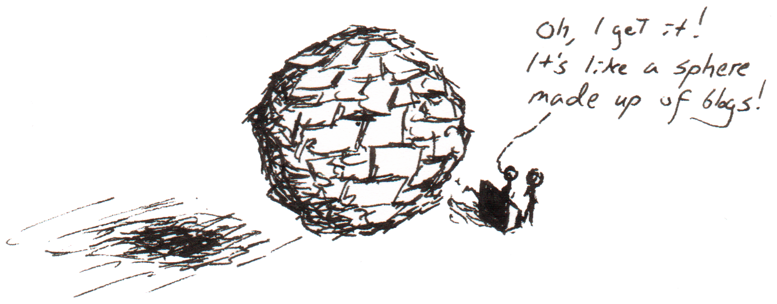
Early mornings are productive hours, in particularly when doing stuff that is mentally not very demanding, like sifting through the internet.
So, last Friday morning, while re-reading a weblog by Judith Curry on issues with scientific publication and reproducibility of results (‘Trust, and don’t bother to verify‘), I came accross this statement at the very end of her blogpost:
And finally, getting back to the ‘verify’ and replication issue, the blogosphere is already playing a hugely important role here, with McIntyre as the original auditor, longstanding contributions from Lucia, and a host of competent new blogospheric auditors that are emerging.
Since we live in a day and age where everything appears to be about ‘framing the issue’, it suddenly struck me that this is the justification of the blogosphere that would be hard for anyone to ignore. I’ve often thought hard and long about how to perceive the climate blogosphere, but the essence, I think, is this.
In general and for various reasons, scientists nowadays neither have the time and nor the funding to reproduce published results ‘head to toe’ (if they ever had, but alas, I digress). However, this rather technical stuff can easily be assessed and understood by those with sufficient background in mathematics and statistics but without formal training in climate science. In particular because most of the data used in climate science is fully open for anyone to obtain. I’m not sure if this is unique for climate science, nor do I know under what conditions this happens (why start lay people getting involved, what is the relevance of public availability of research data etc.) and to what extent this trickles down in climate science itself (either via real peer-reviewed publications or via media attention, books, weblogs etc.), but Hajo told me this occurs in many scientific fields (albeit less publicly visible).
The same could be argued from the perspective of IPCC and its ignoring of certain scientific literature. Again, the blogosphere is filling a void by drawing attention to literature that may be at odds with whatever IPCC claims or what the perceived mainstream view is, or what has been ignored by IPCC.
Hence, here you have your framework and justification for the existence of a critical blogosphere. You fill an important if not crucial void that the science has left untouched. Keep that in mind whenever the climate blogosphere is criticized, there is no denying that this IS happening.






Geef een reactie